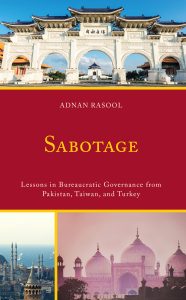I am Adnan!
I am an Assistant Professor of Political Science at the College of Business and Global Affairs at the University of Tennessee at Martin (UTM). I specialize in International Relations and Comparative Politics with a regional focus on Asia. I am also the recipient of UTM’s prestigious Hardy Graham Distinguished Faculty Professorship. Additionally, I am also the Principal Lead of the Global Experiential Learning Lab/Regional Development Lab and the Coordinator of the Center for Societal Impact at College and Business and Global Affairs.
At UTM, I teach courses on World Politics, International Relations, Regions of the World (Asia and Africa), and Contemporary Global Issues (Human Rights and Politics of War/Peace). I am part of my College’s Council on Enhancing Diversity and Inclusion (D&I) and the Classroom Technology Committee. I am also a Faculty Senator for the College of Business and Global Affairs and I also serve on the University’s Committee of Faculty Research and Development.
 My book, Sabotage: Lessons in Bureaucratic Governance from Pakistan, Taiwan, and Turkey, adresses the question: How does a state continue functioning and ensuring public service delivery even during times of political crisis? by arguing that a high-quality bureaucracy operating with institutional autonomy. Using primary data collected through extensive fieldwork in Pakistan, Turkey, and Taiwan, it explains how bureaucracy is the lynchpin that can save or sabotage a state.
My book, Sabotage: Lessons in Bureaucratic Governance from Pakistan, Taiwan, and Turkey, adresses the question: How does a state continue functioning and ensuring public service delivery even during times of political crisis? by arguing that a high-quality bureaucracy operating with institutional autonomy. Using primary data collected through extensive fieldwork in Pakistan, Turkey, and Taiwan, it explains how bureaucracy is the lynchpin that can save or sabotage a state.
My current research interests are mainly in the fields of comparative politics, international relations, and pedagogical innovation in Higher Education. My research philosophy is rooted in trying to answer questions that not only have academic implications but also real-world policy impacts. That is why most of my current research explores overarching questions that we face as states and communities.
My research has appeared regularly in journals like Asian Politics & Policy (APP), Journal of Indian and Asian Studies (JIAS), and Journal of Political Science Education (JPSE). You can find links to my articles on the Research Page.
My future research agenda is focused on two areas: Comparative Analysis of Trade and Diplomacy in Southeast Asia and Pedagogical Innovation. The newer work I am pursuing, for which I have won a generous travel grant from the Office of Research and Sponsored Programs at UTM, studies how small states, particularly in East Asia, exert an outsized influence in foreign policy courtesy of soft power.
I am also interested in exploring the role organizations like the Association of Southeast Asian Nations (ASEAN) play in maintaining neutrality in the region. I am working on comparatively analyzing the approach the US and China are taking in the Indo-Pacific with regard to building alliances. In tune with this work, I am in the early stages of exploring how Pacific island nations are responding to the dueling nature of great powers that wish to establish dominance in the Pacific.
In addition to being a teacher, I have extensive experience in survey design, data analytics, research, program design, development, and interdisciplinary, evidence-based research. Most recently, I was the lead principal investigator on a grant funded community development and growth project funded by the Ford Inc. I have previously worked for the World Bank, the Asian Development Bank, and USAID-funded projects in Asia and Africa.
My public-facing scholarship has appeared in the Huffington Post, Dawn, The Nation, The Conversation, and The Diplomat.
You can email me at arasool1@utm.edu
